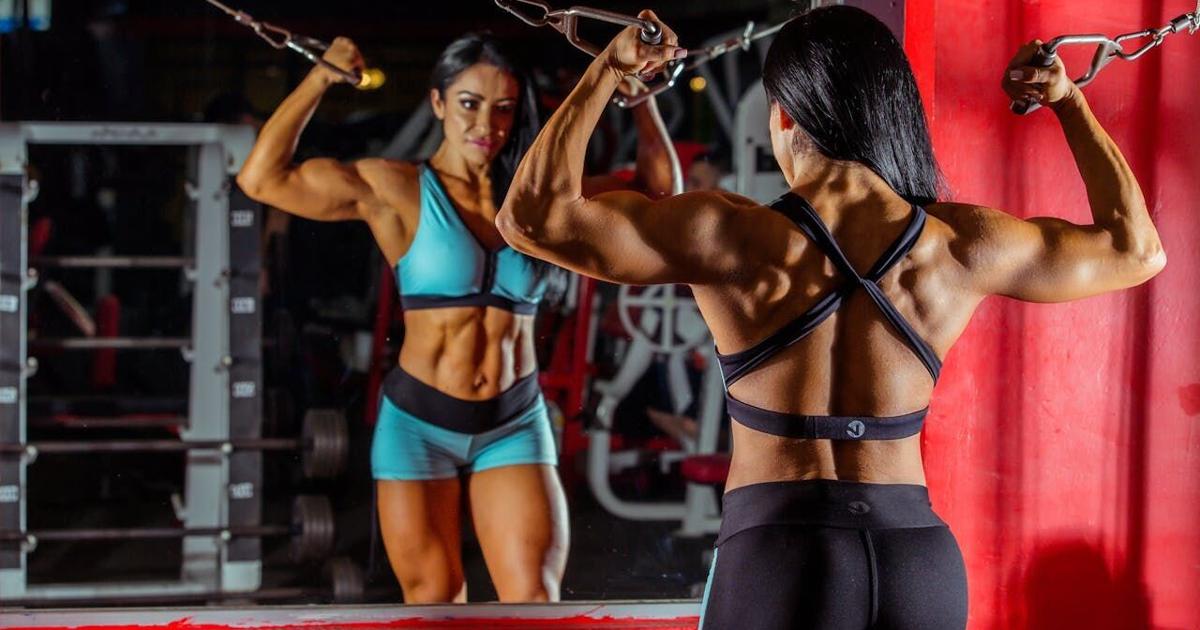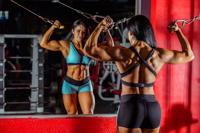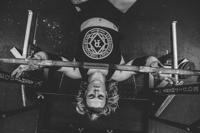(Photo by Sabel Blanco via Pexels)
By Stephen Beech
Female bodybuilders are at increased risk of a fatal heart attack, warns new research.
Sudden cardiac death is responsible for an “unusually high” proportion of deaths among musclewomen worldwide, according to the study.
Sudden cardiac death is defined as when someone dies suddenly and unexpectedly due to a problem with their heart.
The new study, published in the European Heart Journal, found the greatest risk among women bodybuilders competing professionally.
The first large-scale research to systematically investigate deaths of female competitors also revealed a “high proportion” of deaths from suicide and homicide among the group.
Study leader Dr. Marco Vecchiato said: “Bodybuilders, both female and male, often engage in extreme training and use fasting and dehydration strategies to achieve extreme physiques.
“Some also take performance-enhancing substances. These strategies can take a serious toll on the heart and blood vessels.
(Photo by Sabel Blanco via Pexels)
“Over recent years, more and more women have taken up strength training and competitive bodybuilding.
“Despite this growing participation, most of the available research and media attention has focused exclusively on male athletes.
“After publishing our previous study on mortality in male bodybuilders, we realised there was a striking lack of data on female athletes in the same field.”
The research team gathered the names of 9,447 female bodybuilders from the official competition records and from an unofficial online database.
All the women had participated in at least one International Fitness and Bodybuilding Federation event between 2005 and 2020.
The researchers then searched for reports of deaths of any of these named competitors in five different languages across different web sources, including official media reports, social media, bodybuilding forums and blogs.
Any reported deaths were then cross-referenced using multiple sources, and the reports were verified and analysed by two doctors to establish, as far as possible, the cause of death.
The research team found 32 deaths among the women, with an average age at death of around 42.
Sudden cardiac death was the most common cause of death, accounting for 31% of deaths.
The risk of sudden cardiac death was more than 20 times higher among professional bodybuilders, compared to amateurs.
Alora Griffiths
The research team says their findings indicate that the risk of sudden cardiac death seems much higher among women bodybuilders compared to other professional athletes, although it is lower than the risk for male bodybuilders.
Suicide or homicide accounted for 13% of deaths, four times higher than in male bodybuilders.
Dr. Vecchiato, from the University of Padova in Italy, said: “This striking difference suggests that, beyond cardiovascular risks, female athletes in this field may face unique psychosocial pressures, possibly linked to body image expectations, performance-enhancing substance use, or the extreme demands of the sport.
“For female bodybuilders, this research is a reminder that the pursuit of extreme muscularity and leanness, while often celebrated, may come at a cost to health, particularly cardiovascular health.”
He added: “We also need a shift in the sport’s culture, to raise awareness of the risks, not only within the professional ranks, but also in the broader community of women engaging in high-intensity strength training.
“For clinicians, especially those working in sports medicine and sports cardiology, these findings underscore the need for proactive screening and counseling, even in young and seemingly healthy female athletes.
“These individuals may not perceive themselves as at risk, but the data suggest otherwise.”
Dr. Vecchiato and his team are now studying the health of competitors across different eras of bodybuilding to see whether changing practice has had an impact on the causes and rates of deaths.





